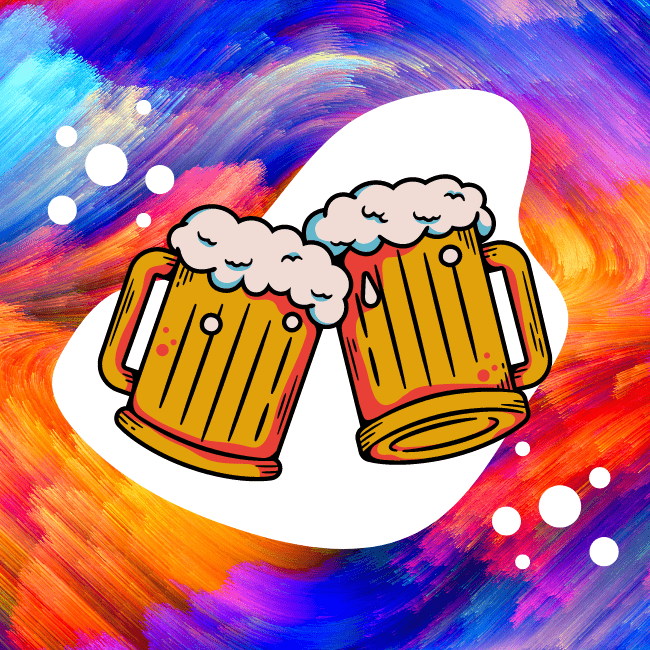The many ways of dealing with a hangover

One day, you craved and missed the taste of alcohol burning to your throat and decided to have a drink. The hypnotizing and ecstatic feeling rushes through your brain. The relief makes you want to drink more to uninterrupted float on cloud nine; makes you escape reality. Suddenly, the bright and scorching ray of sunlight hits you back to reality. You opened your eyes with fuzzy and rotating vision with a body as heavy as a dump comforter.
Just about every drinker has woken up with a terrible headache, parched mouth, nausea, and dizziness that occur with overindulging in too much alcohol. A hangover, in other terms, is the uncomfortable day that follows having one drink after another. There is no cure for a hangover, only techniques to avoid getting one and cure the present symptoms.

Indeed, hangovers are uncomfortable. Fortunately, some do-it-yourself techniques exist to lessen the discomfort. With that so, I compiled some preventions and remedies to help you deal with it.
Here are a few things you can consider to prevent yourself from getting a hangover.
1. Avoid drinking alcohol on an empty stomach since it increases the likelihood of having hangover symptoms. Eating slows the pace at which your body absorbs alcohol.
2. To avoid dehydration, which is one of the primary causes of a hangover, drink lots of water or soft drinks in between alcoholic beverages.
3. Consume alcoholic beverages in moderation. Wherein the recommended daily alcohol intake for women is one drink, whereas the recommended daily alcohol intake for men is two drinks. One drink is defined as 12 fluid ounces (360 milliliters) of 5% alcohol beer, 5 fluid ounces (150 milliliters) of 12% alcohol wine, or 1 1/2 fluid ounces (45 milliliters) of 80-proof liquor.
4. A healthy liver takes around an hour to digest a unit of alcohol, depending on your weight and other factors. Try stopping drinking early in the evening so that the process can begin before you go to bed.
5. Take a glass of water between alcoholic beverages. This can help you drink less alcohol and reduce dehydration caused by alcohol.
6. To avoid hangovers, avoid alcohol totally. Kidding aside!

Moreover, there are also some ways you can do to help yourself deal with the hangover.
1. Drink plenty of water to replace lost fluids.
“Alcohol is a diuretic, which means it makes you pee more,” explains Shilpi Agarwal, MD, a family care specialist in Washington, DC. “Alcohol accomplishes this by blocking specific hormones that help the body hold on to fluid, and therefore you are losing fluids through peeing,” according to the Cleveland Clinic. You can lose up to a quart of urine in the hours after four alcoholic drinks. Drinking water can assist the circulation and circulatory system transmit nutrients and oxygen to the tissues while also removing wastes following a night of heavy drinking.
2. Get lots of rest.
The fact is that sleep will not sober you up or liberate you from the effects of alcohol, but it will decrease the adverse effects you will experience.
Fatigue, headaches, and irritability are all hangover symptoms that are amplified by a lack of sleep, so getting some rest is a good recovery and preventative strategy. Deep, quality sleep is restorative, so you may stay in bed as long as you like!
3. Have a hearty breakfast.
Hangovers are occasionally connected with low blood sugar levels, a condition called as hypoglycemia. Alcohol can produce low blood sugar levels for hours because it interferes with the liver’s release of glucose into the blood.
This can be problematic for persons with type 1 diabetes who use insulin because the liver may not release enough glucose, resulting in hypoglycemia. Although hypoglycemia is not the most common cause of hangovers, it can contribute to symptoms like lethargy and headache.
Following drinking, a substantial morning or late-night meal may help keep your blood sugar levels stable.

To further conclude, hangovers can be avoided and cured if you drink responsibly. Drinking little amounts of alcohol reduces the likelihood of symptoms. Drink less than the quantity required to become intoxicated. Even if you do become drunk, drinking less will make your hangover less severe. Drink responsibly!
Kraiza Pascual is a 22-year-old self-taught digital artist and an aspiring writer who loves to feature foods, places, and lifestyles.






